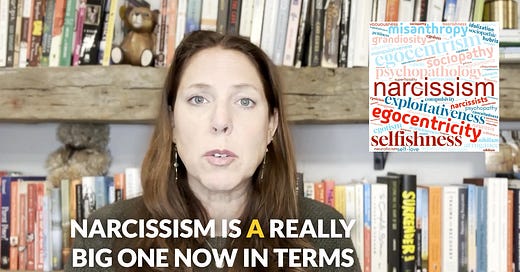Welcome to Res Ipsa, the first Chicken and Bones edition.
So on Friday, we talked about:
What is abuse?
What does it look like?
How do you analyze it?
One of the things was that it can be nuanced. It can be difficult to sometimes evaluate what is and isn't abuse. So today in Chicken and Bones, we're going to talk about what do we keep from that?
What do we learn from that framework or that analysis? And what can we throw away? What's not helpful?
I wanted to start talking about the different terminology that we often see in the public sphere related to abuse. The word abuse generally, other words, we might see are trauma, narcissism is a really big one now in terms of looking at abuse. One tactic being gaslighting. Let's start with those and talk about what do we keep and what's not helpful?
Everything on a Spectrum
When we look at topics like abuse or trauma or narcissism, everything is on a spectrum. There is a continuum of behavior in all of us that starts with on the one hand, healthy behavior, and then it can get unhelpful, not optimal behavior, and then it can go to unhealthy behavior. Then to abusive behavior. Then on the extreme, cultic behavior.
I didn't invent this spectrum myself. It comes from the work of others that talk about this continuum of behavior. The question then becomes, if we have this continuum of behavior, how do we know when it crosses the line?
How can we say that this thing here is abuse? And this thing here is not, or where on that spectrum is the line in any circumstance? One thought is it like they used to say about pornography? I can't tell you what it is, but I know when I see it.
Is that the line that we look at for abuse? That's not really helpful. That's pretty subjective. I think in some circumstances we can say that after the fact, after we've looked at something and say yeah, now you can see that is abuse, but we need something more defined in order to be objective and fair.
Listen to this episode with a 7-day free trial
Subscribe to Res Ipsa with Melissa J. Hogan to listen to this post and get 7 days of free access to the full post archives.













